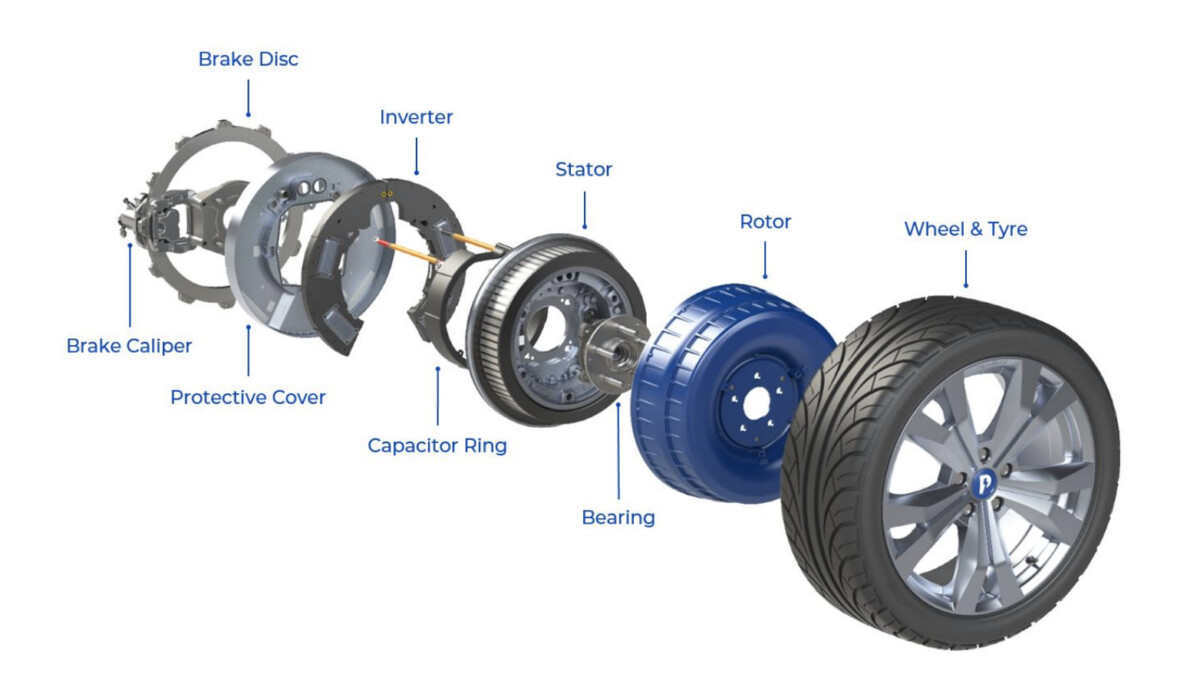BMW plans to use new cylindrical batteries for its future electric cars based on the Neue Klasse platform. Supplied by EVE Energy, these would be more efficient than Tesla’s new 4680 cells. The Chinese company announces 12 minutes to charge an electric car equipped with these new cells!
We are finally starting to know a little more about BMW’s future electric cars which will be based on the long-awaited Neue Klasse platform. Indeed, the manufacturer plans to overhaul its catalog of electric cars in depth, with the arrival of an unprecedented 3 Series but also of the future i5 which is beginning to distill some information. This one, which will also be available as a station wagon, should be released next year.
new batteries
This new platform which will replace CLAR and UKL will bring its share of novelties and should in particular offer increased autonomy. How ? Thanks to the arrival of new cells adopting a cylindrical design. These are expected to be supplied by CATL, which has factories in Europe, as well as Chinese manufacturer EVE Energy.
And now we are finally starting to know a little more about these new batteries, which should be installed on the brand’s vehicles from 2025. The German site Golem relays several information announced by the Chinese equipment manufacturer during a presentation which took place a few days earlier. The specialist Billy Wu was also able to participate and unveiled some slides on Twitter.
Cell manufacturing trend is going big! #EVE showcasing a 4695 cylindrical cell with 280 Wh/kg energy density and also a 560 Ah prismatic, aiming for a 12000+ cycle life. pic.twitter.com/1ABHTYLJ8A
— Billy Wu (@ICBillyWu) March 21, 2023
Contrary to rumors, these cells will eventually adopt the format 4695 and not 4680 like Tesla. This is what BMW had presented to the media Numerama at an event dedicated to drums in September 2022.
Those of future BMWs will be 15 millimeters longer than those of the Californian firm, while the diameter will be identical for both manufacturers. The German manufacturer will also use cells 120 millimeters high for its electric SUVs.
So, the batteries of future BMWs should be more efficient than those already produced by Tesla in its Berlin factory and which equip certain Model Y. They should offer a 46% higher density, i.e. between 260 and 280 Wh/kg depending on the version among the two that will be integrated into the brand’s cars. Tesla’s 4680 cells would top out at 234 Wh/kg. Information to be taken with tweezers, in the absence of official communication on the subject by the firm of Elon Musk.
It is also a pity not to have the data of the volumetric energy density. This is the quantity of energy that can be stored in the same volume, expressed in kWh/m3. This is what makes the biggest difference in range between different batteries, as the higher this density, the easier it is to store more energy in a car of similar size. Weight affects fuel consumption, but only at low speeds.
Many advantages
These taller cells would increase the40% battery life compared to Tesla cells. And this even if the consumption is a little higher due to the weight, which is slightly up by 3 to 4%. As Golem explains, in the worst case, an additional percent of energy would be lost due to less optimal aerodynamics, due to the taller batteries requiring a specific design.
Recently, BMW announced a range increased by 30% compared to the brand’s electric cars currently on the market. This would translate into a range of around 800 km on the European WLTP homologation cycle.
To note that the cylindrical shape adopted by BMW allows greater flexibility in car design, while cooling is simplified, unlike pocket or prismatic battery packs. These new batteries could go hand in hand with the motor system integrated into the wheels developed by the start-up DeepDrive in which BMW has invested. This solution makes it possible to reduce the weight of the vehicle, and therefore to optimize autonomy.

In parallel, the manufacturer has just launched the production of prototypes of solid batteries, which will make it possible to approach 1,000 kilometers of autonomy. However, they should not arrive on a production car before the end of the decade according to certain specialists. Even if some equipment manufacturers like WeLion, which supplies Nio, have already started manufacturing semi-solid batteries.
Note that the BMW battery offering a density of 260 Wh/kg will allow recharge from 10 to 80% in just 12 minutes, without the maximum charging power having been specified. This will undoubtedly require a high-performance charging station, such as the 500 kW one developed by Nio. BMW also plans to copy Tesla’s strategy by offering several versions of the same model with one or two motors depending on the autonomy.
Our colleagues from Numerama are launching Watt Else, their newsletter dedicated to the mobility of the future. Sign up here to make sure you receive the next issue!
